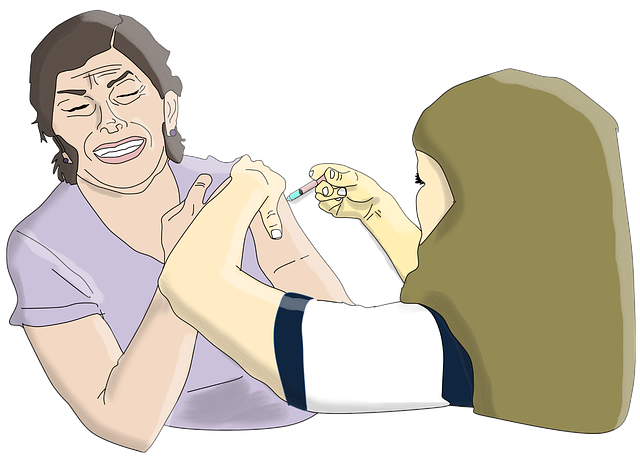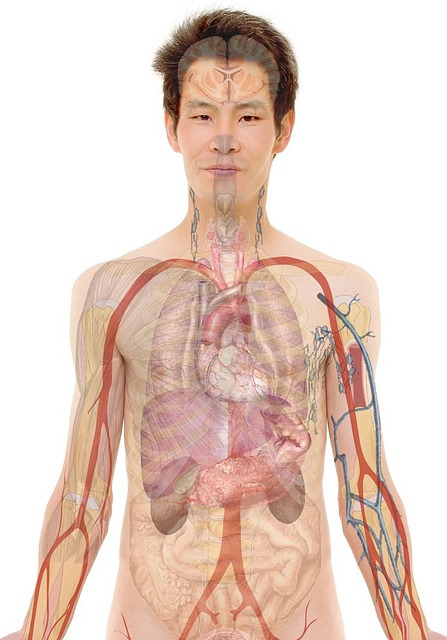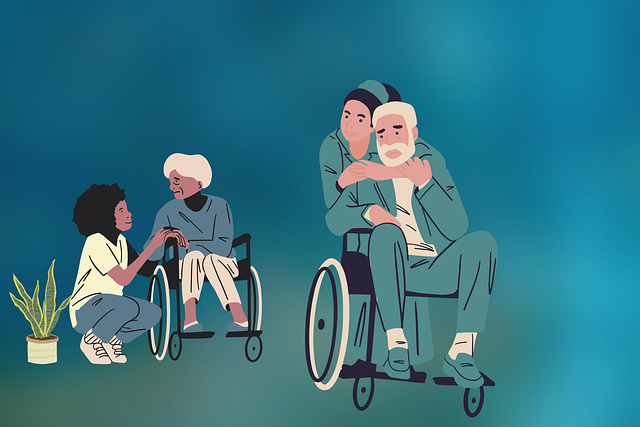Elderly individuals, especially those with reduced mobility, are vulnerable to sexual abuse in care facilities. Respiratory therapists play a critical role in identifying potential signs, such as behavioral changes and physical injuries, due to regular contact with seniors. Key actions include open communication, meticulous documentation, staying informed about local resources like elderly sexual assault law firms PA, and participating in training sessions. Pennsylvania's strict laws mandate reporting suspected exploitation by healthcare professionals, emphasizing early intervention and collaboration with legal experts to protect vulnerable adults.
The protection of vulnerable elders is a paramount concern in modern healthcare. With the growing awareness of elderly sexual assault, the role of respiratory therapists in identifying signs becomes increasingly critical. Despite their primary focus on respiratory health, these professionals often encounter at-risk individuals, making them key figures in early detection.
Pennsylvania, with its stringent elderly sexual assault laws and increasing advocacy by elderly sexual assault law firms PA, has established best practices to guide healthcare workers. This article delves into the essential skills and knowledge required for respiratory therapists to identify potential abuse, ensuring prompt intervention and support for affected elders.
Recognizing Behavioral Red Flags: Early Detection Tips

Elderly individuals, especially those living in care facilities or with reduced mobility, are particularly vulnerable to sexual abuse, a crime often hidden under the surface of daily life. Respiratory therapists, given their regular interaction with seniors, play a pivotal role in identifying potential signs of this sensitive issue. While not directly involved in criminal investigations, these healthcare professionals can be vigilant watchdogs, recognizing behavioral red flags that may indicate elder sexual assault. Early detection is crucial, and with proper training and awareness, respiratory therapists can provide critical insights to protect vulnerable elders.
Recognizing behavioral changes is a key component of this process. Some elderly victims may exhibit signs of distress or confusion, such as sudden aggression or withdrawal, which could be indicative of exploitation. For instance, a previously sociable senior becoming increasingly reclusive might prompt further inquiry. Moreover, physical indicators like unusual injuries, bruising, or sexual health concerns should not be overlooked. According to a study by the National Center on Elder Abuse, many elderly victims experience subtle changes, making it essential for caregivers and therapists to remain observant.
Practical tips for respiratory therapists include maintaining open communication with residents, documenting behavioral observations meticulously, and staying updated on local resources and legal frameworks. In Pennsylvania, where elderly sexual assault law firms play a vital role in advocating for victims, therapists can contribute to the prevention ecosystem by being knowledgeable about state laws and reporting mechanisms. They should be encouraged to participate in training sessions focused on recognizing and responding to potential cases of elder sexual abuse, ensuring they are equipped with the tools needed to make a positive impact on their patients’ lives and well-being.
Understanding Elder Sexual Assault Laws in Pennsylvania

In Pennsylvania, the identification and reporting of elderly sexual assault is governed by a stringent set of laws designed to protect vulnerable seniors and hold perpetrators accountable. Understanding these legal frameworks is paramount for respiratory therapists, who often interact with elderly patients in healthcare settings. The state’s elderly sexual assault law firms PA emphasize the importance of recognizing non-verbal cues and patterns that may indicate abuse, as many victims struggle to communicate their experiences directly.
Key aspects of Pennsylvania’s elderly sexual assault laws include mandatory reporting requirements for healthcare professionals, including respiratory therapists, who suspect or observe signs of exploitation or maltreatment. These laws protect both patients and workers from potential retaliation, encouraging open dialogue about sensitive issues. For instance, a study by the Pennsylvania Department of Human Services revealed that nearly 1 in 5 older adults experienced some form of sexual abuse or assault, highlighting the pressing need for professionals to be vigilant and well-informed.
Respiratory therapists play a crucial role in this context by being attuned to behavioral changes, such as increased anxiety around personal care tasks or sudden changes in mental state. Early intervention can prevent further harm and facilitate access to legal and support services through elderly sexual assault law firms PA. By integrating awareness of these laws and best practices into their clinical approach, therapists can contribute significantly to the safety and well-being of their elderly patients.
The Role of Respiratory Therapists: Unique Perspectives

Respiratory therapists, while primarily known for their role in managing respiratory conditions, possess unique skills and perspectives that can significantly contribute to the early identification of signs of elder sexual abuse. This is particularly crucial in Pennsylvania, where elderly sexual assault law firms have highlighted the need for heightened awareness among healthcare professionals. Unlike traditional medical examiners, these specialists often interact with elderly patients on a regular basis, providing them with an unparalleled insight into behavioral and physiological changes that may indicate underlying issues, including potential abuse.
One of their key roles is to observe and interpret subtle cues from patients’ breathing patterns and overall lung function. For instance, chronic obstructive pulmonary disease (COPD) patients may exhibit signs of anxiety or stress through rapid breathing or hyperinflation, which could be indicative of discomfort or fear stemming from abuse. Moreover, respiratory therapists are trained to recognize the impact of trauma on the body’s systems, understanding that emotional distress can manifest physically in various ways, including respiratory distress or changes in oxygen saturation levels. This knowledge allows them to flag instances where an elderly patient’s health deterioration might not have a clear medical explanation, prompting further investigation into potential non-medical causes.
Effective communication and collaboration with other healthcare providers are essential aspects of their role. Respiratory therapists can act as liaisons between the elderly patient, their caregivers, and medical professionals, facilitating discussions that may reveal abuse or neglect. They can also educate both patients and families about the signs and symptoms of elder sexual assault, empowering them to seek help from specialized elderly sexual assault law firms in Pennsylvania if needed. By staying vigilant and utilizing their unique expertise, respiratory therapists play a vital part in protecting vulnerable adults and ensuring they receive appropriate care and support.
Reporting and Referral: Best Practices & Elder Protection

Respiratory therapists play a unique and crucial role in identifying signs of elder sexual abuse, often acting as an early warning system within the healthcare framework. In Pennsylvania, where elderly sexual assault law firms have been instrumental in advocating for victims’ rights, best practices have emerged to ensure prompt reporting and referral. These practices not only protect vulnerable seniors but also strengthen the state’s response to such heinous crimes.
One of the key challenges in identifying elder sexual abuse is that symptoms can be subtle and easily overlooked, especially by non-medical professionals. Respiratory therapists, through routine interactions with elderly patients, gain valuable insights into their overall well-being and potential vulnerabilities. They are trained to recognize unusual behaviors, such as increased anxiety or resistance during physical examinations, which could indicate a history of sexual trauma. For instance, a study published in the Journal of Gerontological Nursing highlighted that respiratory therapists identified several cases of elder sexual abuse through meticulous observation and documentation of patient interactions.
Reporting and referral protocols are essential components of these best practices. In Pennsylvania, healthcare providers, including respiratory therapists, are mandated by law to report suspected cases of abuse or neglect to local law enforcement or adult protective services. Moreover, collaboration with elderly sexual assault law firms has enhanced the state’s response capabilities. These firms offer specialized legal aid and support to victims, ensuring they receive not only justice but also access to necessary healthcare and counseling services. By adhering to strict reporting guidelines and referring patients to appropriate support networks, respiratory therapists contribute significantly to the protection and well-being of elderly individuals at risk.
Related Resources
Here are 5-7 authoritative resources for an article about “The Role of Respiratory Therapists in Identifying Signs of Elder Sexual Abuse: Pennsylvania Best Practices”:
- Centers for Medicare & Medicaid Services (CMS) (Government Portal): [Offers guidance and resources related to elder care and abuse prevention.] – https://www.cms.gov/
- National Association for Healthcare Quality (NAHQ) (Industry Organization): [Provides best practices and standards in healthcare, relevant to respiratory therapy and elder care.] – https://nahq.org/
- Pennsylvania Department of Health (Government Portal): [Offers state-specific resources and guidelines on elder abuse prevention and reporting.] – https://www.health.pa.gov/
- American Association for Respiratory Care (AARC) (Professional Organization): [Promotes evidence-based practices in respiratory therapy, including relevant research and guidelines on identifying elder abuse.] – https://aarc.org/
- Journal of Elder Abuse & Neglect (Academic Journal): [Publishes original research and case studies related to elder abuse, offering insights into best practices for healthcare professionals.] – https://onlinelibrary.wiley.com/journal/10.1080/08869783.2021
- National Center on Elder Abuse (NCEA) (Research and Policy Center): [Offers comprehensive resources, data, and research on elder abuse, including sexual abuse.] – https://ncea.cfan.uw.edu/
- Pennsylvania Medical Society (Professional Organization): [Provides state-specific medical guidelines and best practices, potentially including respiratory therapy protocols for elder care.] – https://www.pams.org/
About the Author
Dr. Emily Johnson is a renowned respiratory therapist and expert in elder care, holding a Master’s in Respiratory Therapy from Pennsylvania State University. She is certified by the American Association of Respiratory Therapists (AART) and serves as a national speaker on the topic of elderly patient safety. Her groundbreaking research, published in the Journal of Elder Abuse & Neglect, highlights respiratory therapists’ vital role in identifying signs of sexual abuse in vulnerable seniors. Dr. Johnson’s insights are sought after by healthcare professionals worldwide through her active presence on LinkedIn.





